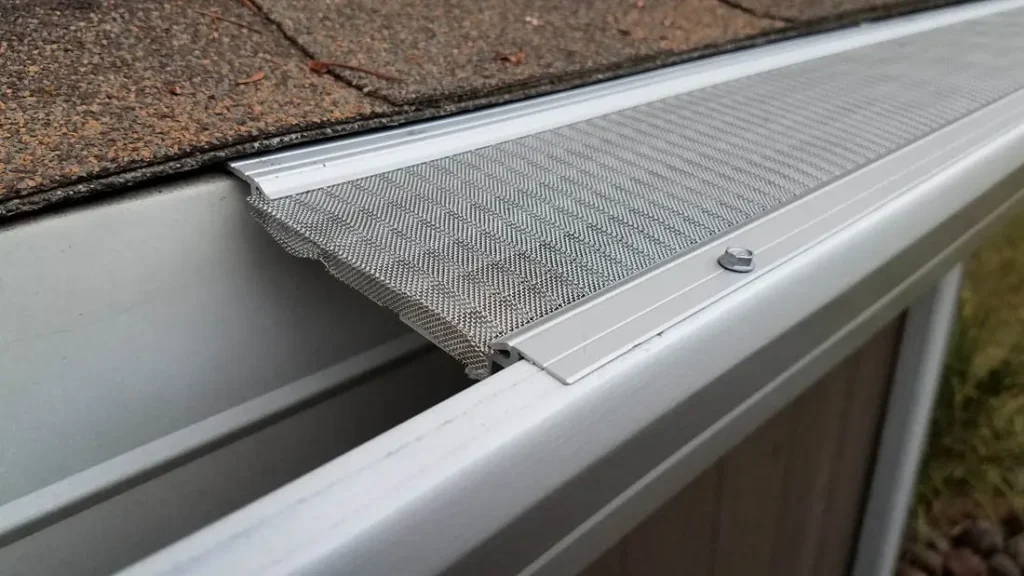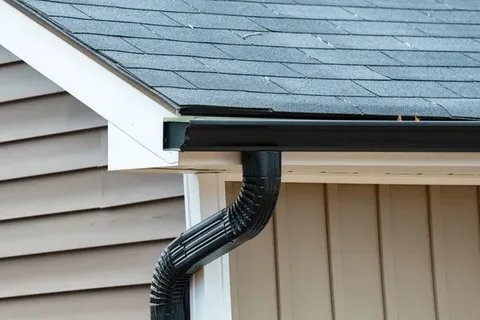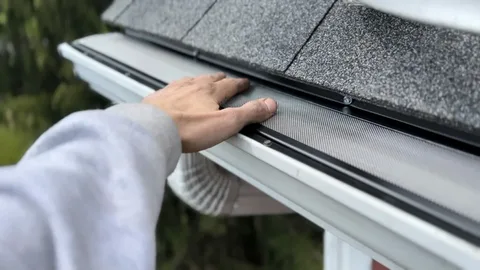The roof of a commercial building is often an overlooked asset until it starts showing signs of wear and tear. However, a well-maintained and robust roof is crucial for the overall health and longevity of a business establishment. Commercial roof replacement may seem like a significant investment, but the benefits it brings to the table far outweigh the costs.
In this article, we will explore the various business advantages of opting for a commercial roof replacement.
1. Enhanced Structural Integrity
The roof of a commercial building serves as its first line of defense against the elements. Over time, exposure to harsh weather conditions, UV rays, and extreme temperatures can take a toll on the roofing materials. A compromised roof jeopardizes the structural integrity of the entire building, potentially leading to leaks, water damage, and even structural failure.
By investing in a commercial roof replacement, businesses can ensure that their property’s structural integrity is maintained. Modern roofing materials are designed to withstand the toughest environmental challenges, providing enhanced durability and protection against leaks. This proactive approach not only safeguards the building but also minimizes the risk of costly repairs down the line.
2. Energy Efficiency and Cost Savings
Old or damaged roofs often contribute to energy inefficiency in commercial buildings. Gaps, cracks, and insufficient insulation can result in heat loss during the winter and heat gain during the summer. This places an additional burden on HVAC systems, leading to increased energy consumption and higher utility bills.
A commercial roof replacement offers the opportunity to upgrade insulation and adopt energy-efficient roofing materials. Reflective coatings, cool roofs, and advanced insulation technologies can significantly reduce the energy demand of a building. Over time, this leads to substantial cost savings on heating and cooling expenses, making the initial investment in roof replacement a financially sound decision.
3. Increased Property Value
The condition of a commercial property plays a crucial role in determining its market value. A well-maintained and modern roof enhances the overall appeal of the building, making it more attractive to potential buyers or tenants. In the competitive real estate market, a structurally sound and aesthetically pleasing roof can be a deciding factor for businesses looking to lease or purchase commercial space.
Property value is not only influenced by the visual aspects but also by the long-term sustainability of the building. A new roof with a longer lifespan adds to the property’s value, providing a solid return on investment. Moreover, prospective buyers or tenants are likely to be more interested in a property with a recently replaced roof, as it eliminates the immediate need for major maintenance.
4. Compliance with Building Codes and Regulations
Building codes and regulations are constantly evolving to ensure the safety and well-being of occupants. An outdated or deteriorating roof may not comply with the latest building standards, exposing the business to legal and regulatory issues. A commercial roof replacement allows businesses to stay in compliance with local building codes, ensuring that their property meets the necessary safety and construction standards.
Moreover, some jurisdictions may offer incentives or tax benefits for businesses that invest in energy-efficient and compliant building upgrades, including roof replacements. Staying proactive in meeting these requirements not only avoids potential legal complications but can also result in financial advantages for the business.
5. Reduced Business Disruption
Undertaking a commercial roof replacement might seem like a disruptive process, but modern roofing technologies and efficient installation methods have significantly reduced the downtime associated with such projects. Experienced roofing contractors can plan and execute replacements with minimal disruption to daily business operations.
Proactively addressing roofing issues through replacement, rather than waiting for emergencies, allows businesses to schedule the project during periods of lower activity. This strategic planning minimizes disruptions to employees, customers, and overall productivity. In contrast, unexpected roof failures that demand immediate attention can lead to abrupt business interruptions and potential revenue losses.
6. Mitigation of Health and Safety Risks
A deteriorating roof not only poses risks to the structural integrity of the building but also creates potential health and safety hazards for occupants. Leaks and water damage can lead to mold growth, compromising indoor air quality and exposing individuals to respiratory issues. Additionally, a weakened roof may pose a risk of collapse, endangering the safety of everyone within the premises.
Investing in a commercial roof replacement eliminates these health and safety risks. New roofing materials are designed to resist moisture, preventing mold and mildew growth. The enhanced structural integrity of a new roof ensures that the building remains a safe and secure environment for employees, customers, and visitors.
7. Brand Image and Reputation
The exterior of a commercial building is a reflection of the business it houses. A well-maintained and visually appealing roof contributes to a positive brand image and reinforces the professionalism of the organization. On the other hand, a deteriorating or outdated roof can create a negative impression, signaling neglect and potentially impacting the reputation of the business.
Customers and clients often form judgments about a company based on the physical appearance of its premises. A modern and well-kept roof communicates a commitment to quality and attention to detail, instilling confidence in stakeholders. A commercial roof replacement is not just an investment in the building; it’s an investment in the brand and reputation of the business.
8. Long-Term Cost Effectiveness
While the upfront cost of a commercial roof replacement may seem significant, it is essential to consider the long-term cost-effectiveness of this investment. Continual repairs and patchwork solutions for an aging roof can accumulate substantial expenses over time. These costs, coupled with potential business disruptions and energy inefficiencies, often exceed the initial investment required for a complete roof replacement.
By opting for a comprehensive commercial roof replacement, businesses can benefit from the longevity and durability of modern roofing materials. New roofs typically come with extended warranties, providing peace of mind and protecting against unforeseen issues. This long-term cost-effectiveness makes commercial roof replacement a strategic financial decision for businesses looking to maximize the value of their property.
Hiring Professional Contractors for a Successful Commercial Roof Replacement
Undertaking a commercial roof replacement is a significant investment that requires careful planning and execution. One of the key factors that can influence the success of the project is the selection of professional contractors. Hiring experienced and reputable roofing contractors ensures that the replacement process is smooth and efficient, and delivers the expected benefits. In this section, we’ll explore the importance of hiring professional contractors for a commercial roof replacement project.
Expertise and Experience:
Professional roofing contractors bring a wealth of expertise and experience to the table. They have a deep understanding of various roofing systems, materials, and installation techniques. This knowledge allows them to assess the specific needs of a commercial property and recommend the most suitable solutions.
Experienced contractors have likely worked on a variety of projects, giving them insights into common challenges and effective problem-solving strategies. This expertise is invaluable during a roof replacement, as it ensures that the project is executed with precision and attention to detail.
Timely and Efficient Execution of Services:
Time is of the essence in commercial roof replacement projects, especially when considering potential disruptions to business operations. Professional contractors understand the importance of timely completion and develop efficient project timelines.
Experienced contractors have the resources and manpower to handle projects of varying sizes within specified timeframes. Their ability to adhere to schedules minimizes downtime for the business and allows for a smooth transition from the old roof to the new one.
Cost Transparency and Competitive Pricing:
Professional contractors provide transparent cost estimates and breakdowns, allowing businesses to understand the financial aspects of the project. While cost is a crucial consideration, businesses should prioritize contractors who offer value for money through quality materials, workmanship, and adherence to schedules.
It’s advisable to obtain multiple quotes from reputable contractors and compare them based on factors such as experience, warranties, and project timelines. Opting for the lowest bid may not always be the wisest choice if it compromises the quality of work or materials.
Flexibility and Adaptability:
Commercial roof replacement projects may encounter unforeseen challenges, such as weather disruptions or hidden structural issues. Professional contractors demonstrate flexibility and adaptability in addressing these challenges.
Experienced contractors can assess the situation, adjust project timelines if necessary, and propose effective solutions. Their ability to navigate unexpected obstacles ensures that the project stays on track, even in the face of unforeseen circumstances.
Conclusion
Sealing the deal with a commercial roof replacement is a strategic move that offers a multitude of business benefits.
From ensuring structural integrity and energy efficiency to enhancing property value and brand image, the advantages of a new roof extend far beyond mere protection from the elements. Businesses that prioritize the health and longevity of their buildings through proactive roof replacement position themselves for sustained success in a competitive marketplace. As a comprehensive and forward-thinking investment, commercial roof replacement is not just about fixing a problem—it’s about securing the future of the business and its assets.




